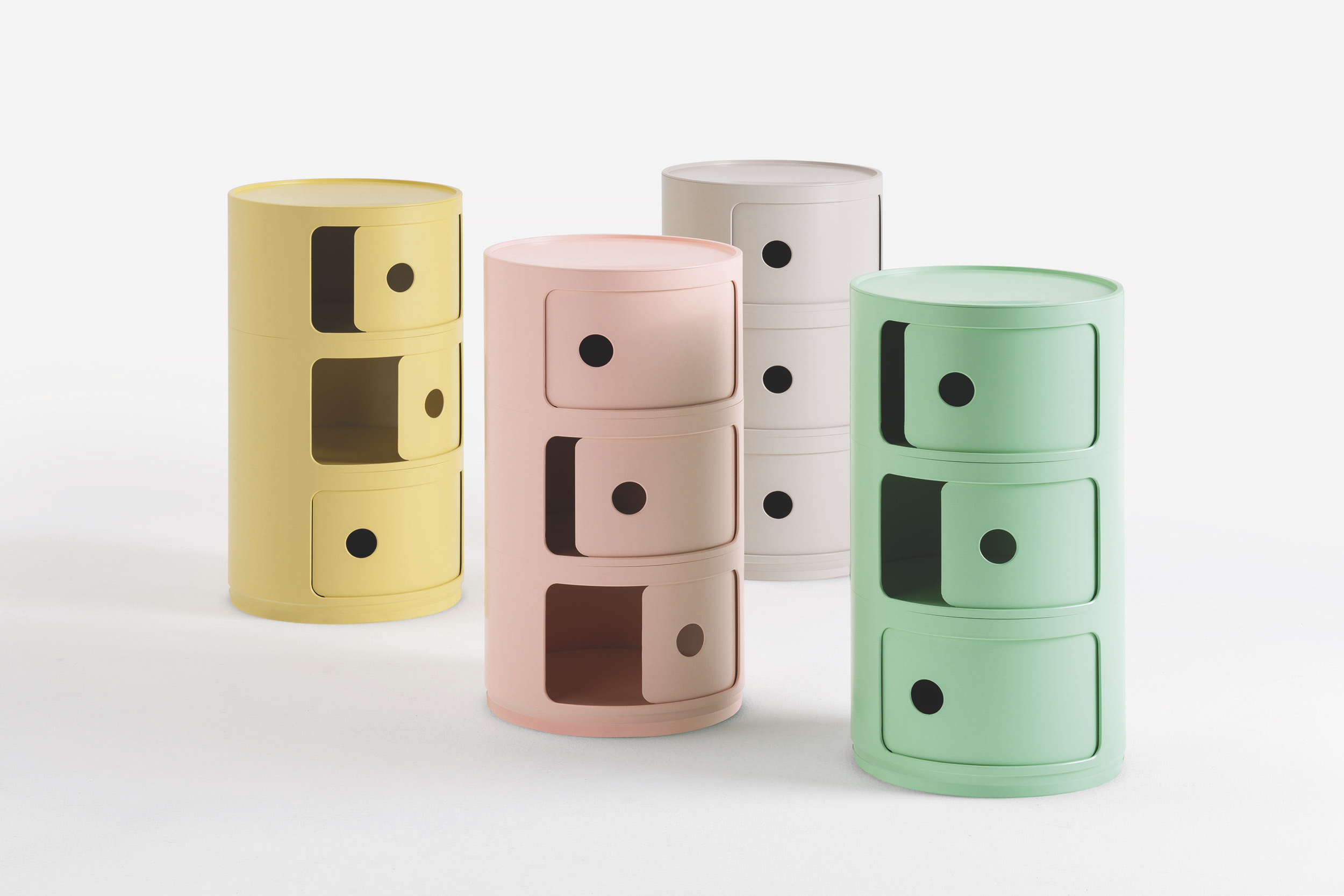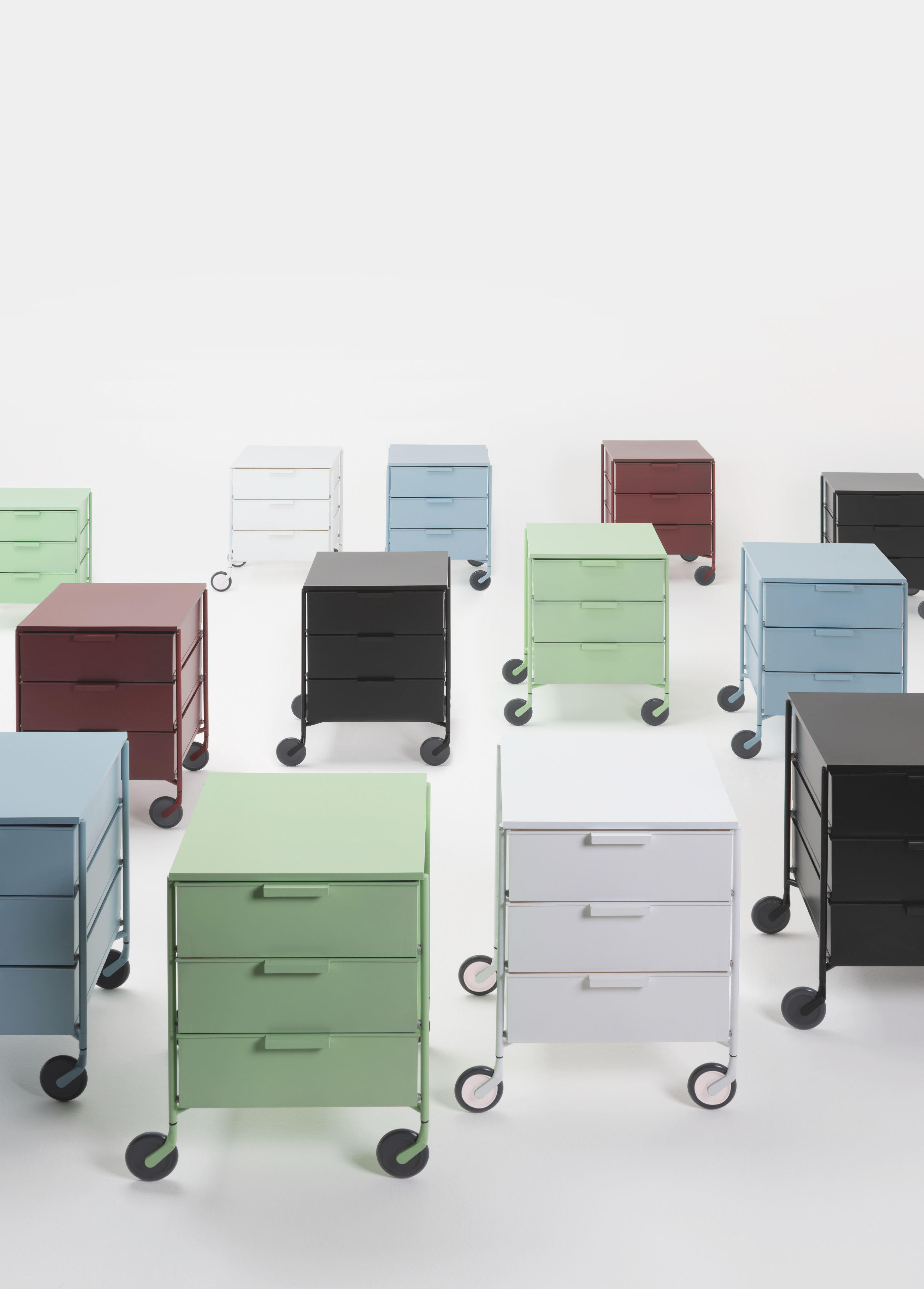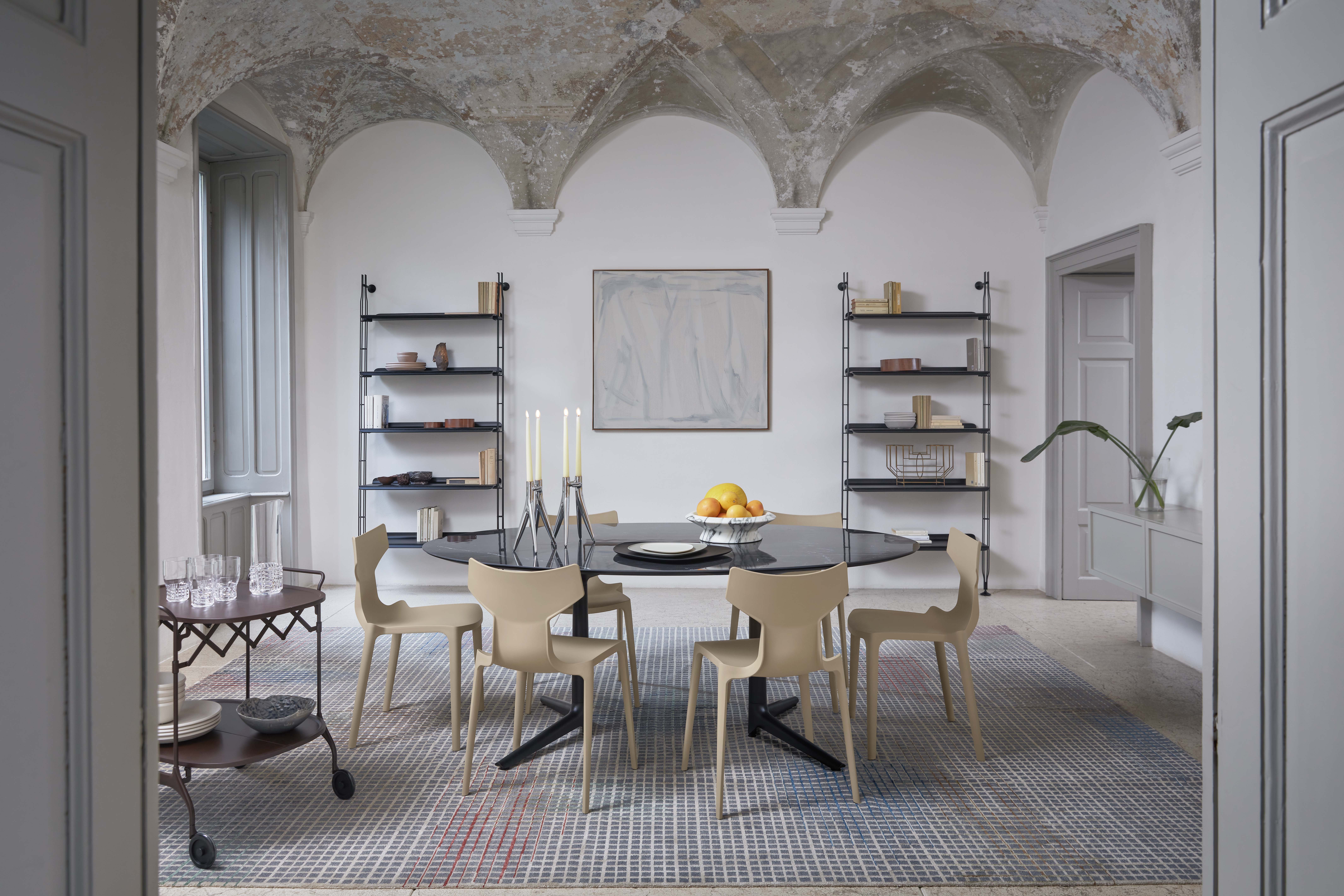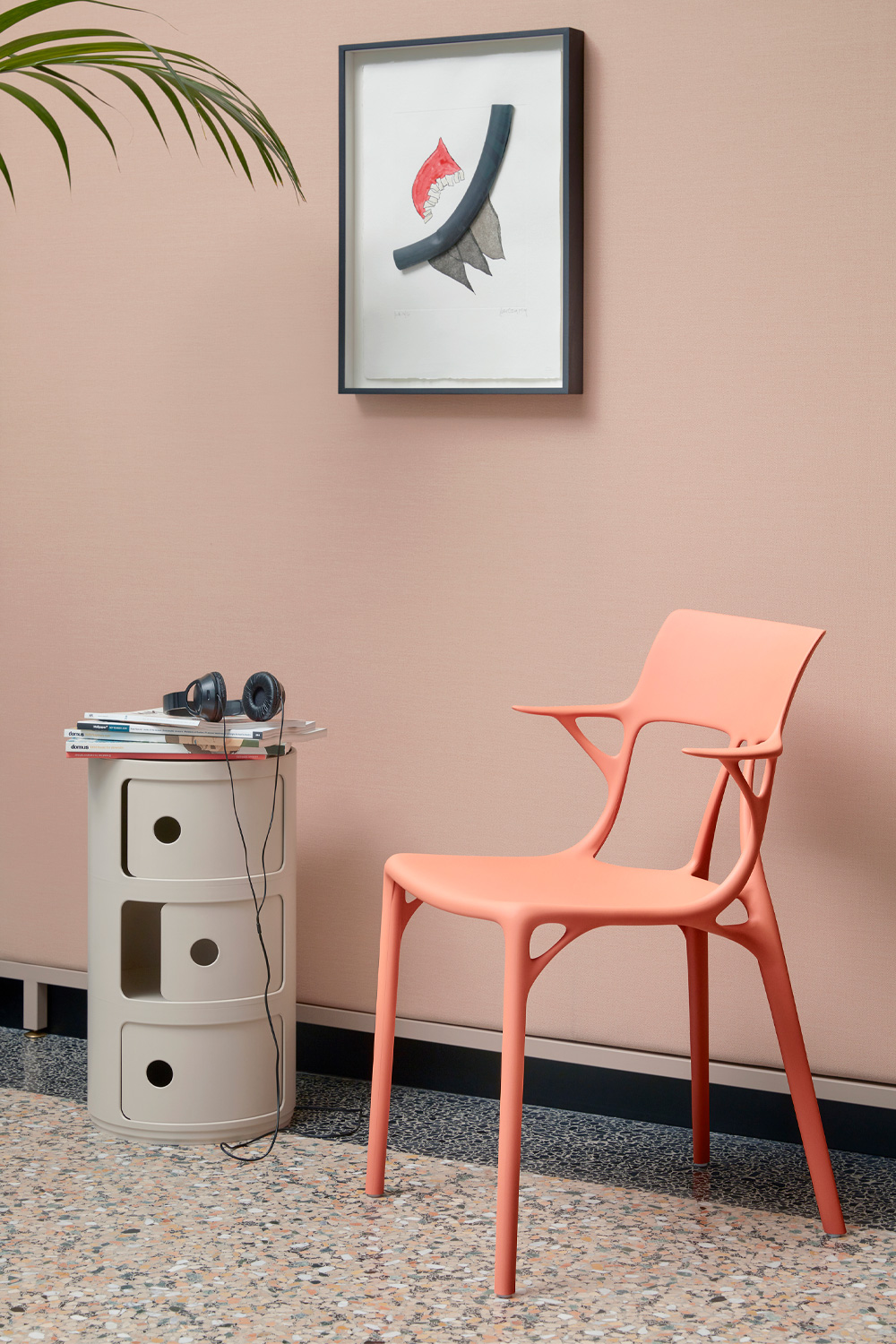Kartell’s industrial manifesto puts sustainability front and centre
Kartell presents its sustainability manifesto, revisiting classic products like the ‘Componibili’ cabinet in biodegradable materials, and introducing new sustainable designs in recycled plastics by Philippe Starck and Antonio Citterio

Receive our daily digest of inspiration, escapism and design stories from around the world direct to your inbox.
You are now subscribed
Your newsletter sign-up was successful
Want to add more newsletters?

Daily (Mon-Sun)
Daily Digest
Sign up for global news and reviews, a Wallpaper* take on architecture, design, art & culture, fashion & beauty, travel, tech, watches & jewellery and more.

Monthly, coming soon
The Rundown
A design-minded take on the world of style from Wallpaper* fashion features editor Jack Moss, from global runway shows to insider news and emerging trends.

Monthly, coming soon
The Design File
A closer look at the people and places shaping design, from inspiring interiors to exceptional products, in an expert edit by Wallpaper* global design director Hugo Macdonald.
Kartell loves the planet: this is the message of the Italian design company’s industrial manifesto, outlining Kartell’s ongoing commitment to sustainability and environmental concern.
Founded in 1949 by Giulio Castelli and Anna Castelli Ferrieri and currently run by second-generation Claudio Luti with third-generation Lorenza Luti, Kartell is today one of Italy’s best-known design brands. It has produced some of the most iconic contemporary designs for the home, from Castelli Ferrieri’s ‘Componibili’ storage units to the ‘Bookworm’ bookcase by Ron Arad and the ‘Louis Ghost’ chair by Philippe Starck, plus further pieces (including furniture, portable lamps and objects) by the likes of Patricia Urquiola, Erwan and Ronan Bouroullec and Tokujin Yoshioka.
Kartell ‘Componibili’ and more: icons revisited with a sustainable approach

The ‘Mobil’ storage unit by Antonio Citterio, now recreated in recycled plastic.
Kartell’s designs are made of plastic, a material not commonly associated with sustainability, but since its inception, the company has worked to ensure its pieces are durable and long-lasting: ‘Kartell’s vocation is to create value: not simple objects, but pieces that can contribute towards building a cultural project,’ reads the manifesto. In recent years, the company’s efforts have expanded to focus on material research and development to ensure every element of the design brand is green.
‘Sustainability has been a key theme throughout the Kartell’s history,’ explains Lorenza Luti. ‘Through our archives, we found several examples of sustainable material experiments from the 1950s, 60s and 70s.’ 2020 marked an important year for Kartell, she says, a time when it continued, and kickstarted, a series of initiatives driven by environmental concern and a desire to revolutionise the company.
These include revisited versions of its classics, such as the 1967 ‘Componibili’ updated in a biodegradable material (a specially developed biomass made of agricultural waste) in a series of pastel colours; and the ‘Mobil’ utility storage, a Compasso d’Oro winner designed in 1994 by Antonio Citterio and now revised in recycled industrial materials from the automotive, furniture and packaging industries.
A new sustainable design direction

Antonio Citterio’s ‘Re-Chair’ in recycled plastic.
Lorenza notes that currently, over half the collection is has been transformed in this direction, with every new piece from Kartell being conceived with sustainability in mind. Examples include ‘Re-Chair’, the new 100 per cent recycled chair by Citterio; and Starck's ‘A.I.’, the company’s first recycled plastic chair, presented in 2019. ‘Our current approach is not just focused on product, but on every process in the company,’ continues Lorenza, explaining that Kartell's material innovation developments are currently branching out into several directions, with special attention to recycled plastics. ‘The challenge has been to create a new material that mantains our products' aesthetic and performance but with a circular approach.’ It’s process, she notes, that has been more than five years in the making and has resulted in a huge leap from the early recycled prototypes.
From a corporate perspective, the brand is also working to gain the necessary certifications to further monitor its work. Engaging with sustainability specialists, Kartell regularly assesses its production for technological suitability, development and quality. ‘We aim at reaching the top level for material certification,’ explains Lorenza. ‘Our designers have been on board with this approach, creating with material waste in mind.’

Philippe Starck’s ‘A.I.’ chair in recycled plastic.
One project several years in the making is dedicated to transparency (a key element of Kartell's product identity and seen, for example, in Starck's ‘Louis Ghost’ chair and Ferruccio Laviani's ‘Bourgie’ lamp). ‘We have been working with a specially developed polycarbonate that combines a second-generation renewable polymer that comes from paper and cellulose waste,’ says Lorenza. This material has a 75 per cent reduced impact on the environment, and will allow Kartell to further develop its sustainability goal across the collection.
As with the recycled plastic already used elsewhere in the collection, the difference in the final product is imperceptible, and the sustainable options will slowly replace existing materials. Lorenza stresses that sustainability is a team effort, and an ongoing collaboration with the company’s team of designers who, she notes ‘are all very sensible to the topic and enthusiastic about collaborating in this direction’.
Adds Claudio: ‘It’s not a question of simply creating a product that seems green, but of generating an industrial strategy that involves the entire manufacturing process.’
Receive our daily digest of inspiration, escapism and design stories from around the world direct to your inbox.
INFORMATION
Rosa Bertoli was born in Udine, Italy, and now lives in London. Since 2014, she has been the Design Editor of Wallpaper*, where she oversees design content for the print and online editions, as well as special editorial projects. Through her role at Wallpaper*, she has written extensively about all areas of design. Rosa has been speaker and moderator for various design talks and conferences including London Craft Week, Maison & Objet, The Italian Cultural Institute (London), Clippings, Zaha Hadid Design, Kartell and Frieze Art Fair. Rosa has been on judging panels for the Chart Architecture Award, the Dutch Design Awards and the DesignGuild Marks. She has written for numerous English and Italian language publications, and worked as a content and communication consultant for fashion and design brands.